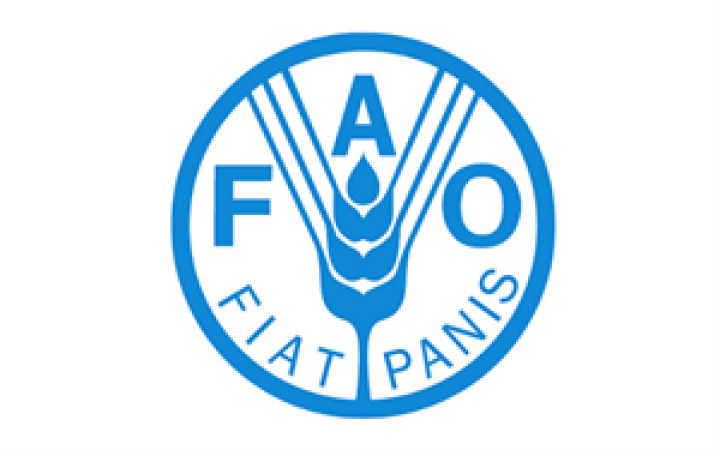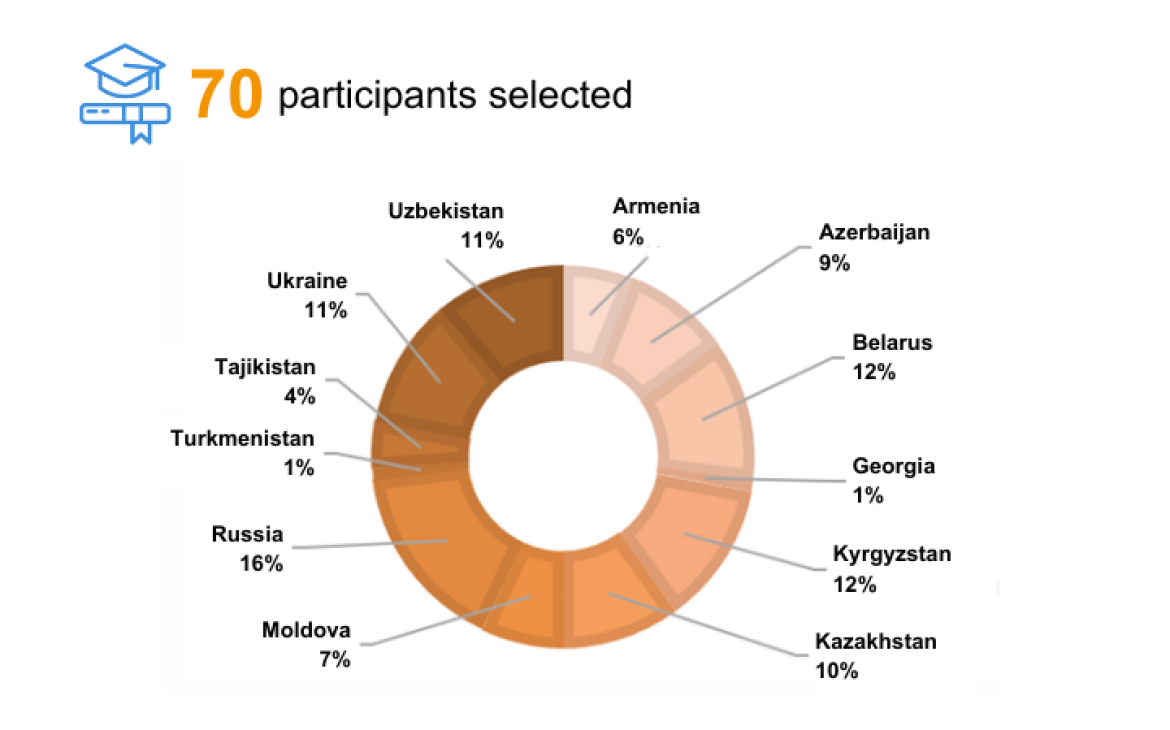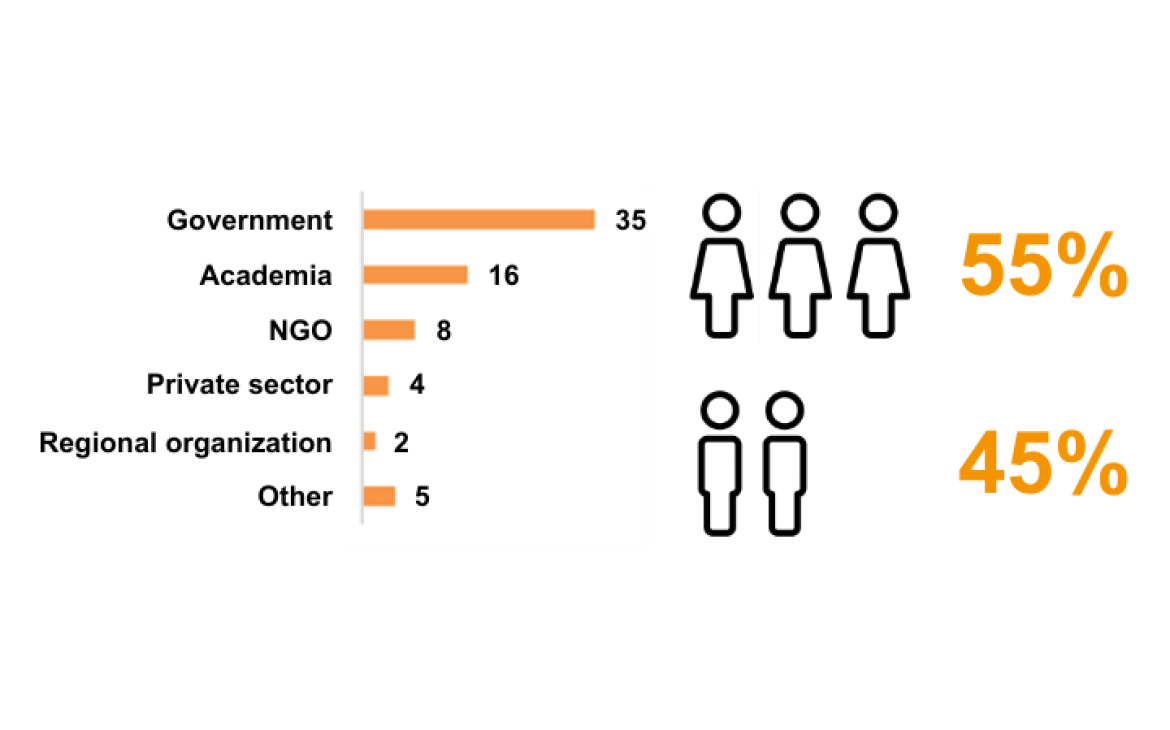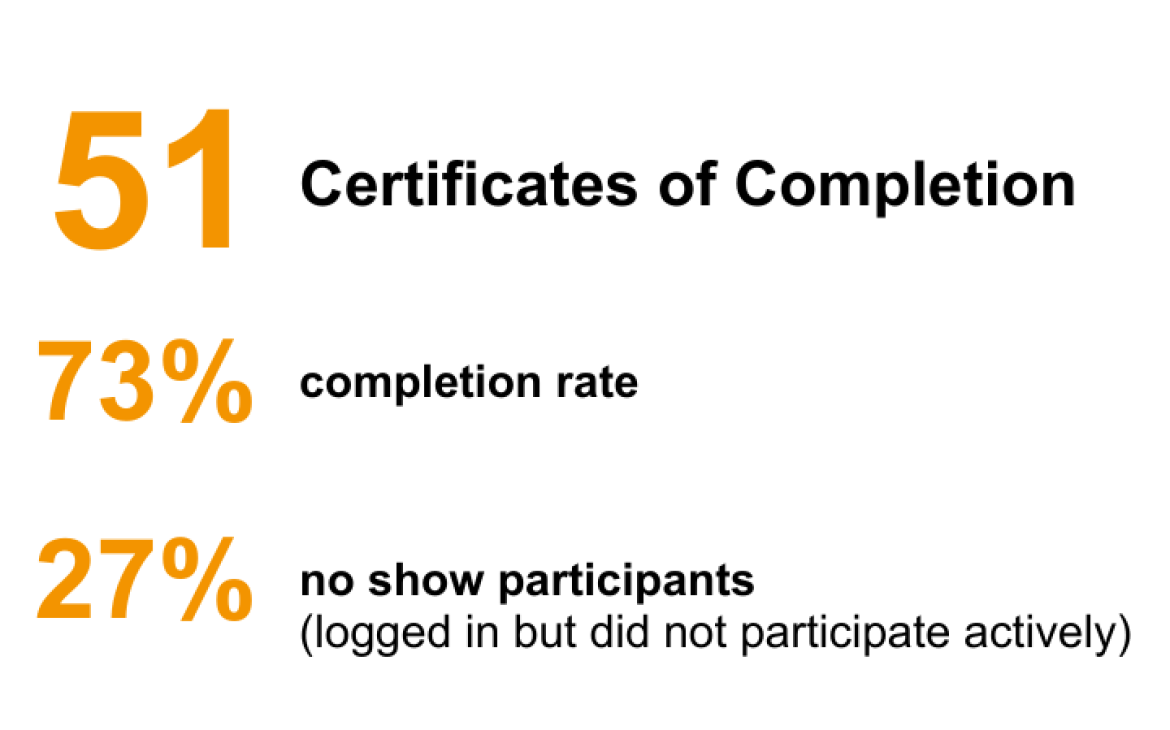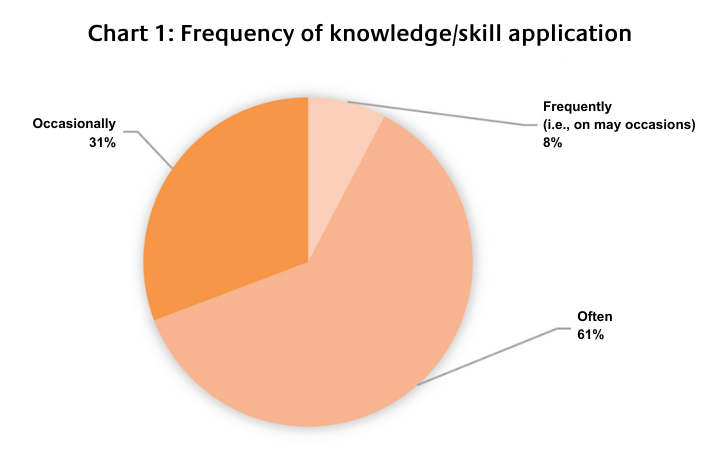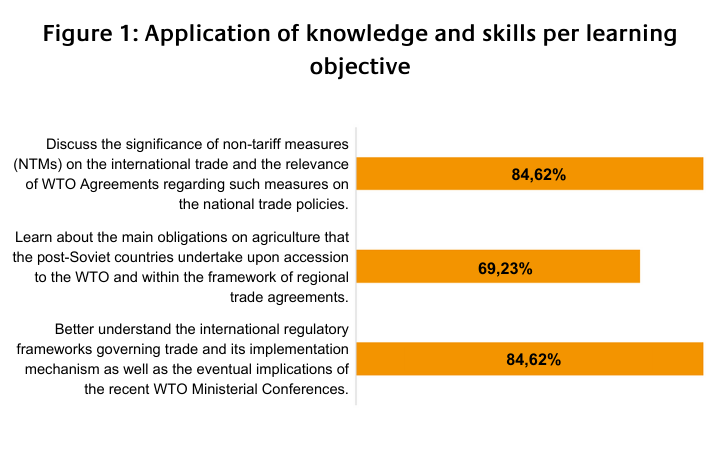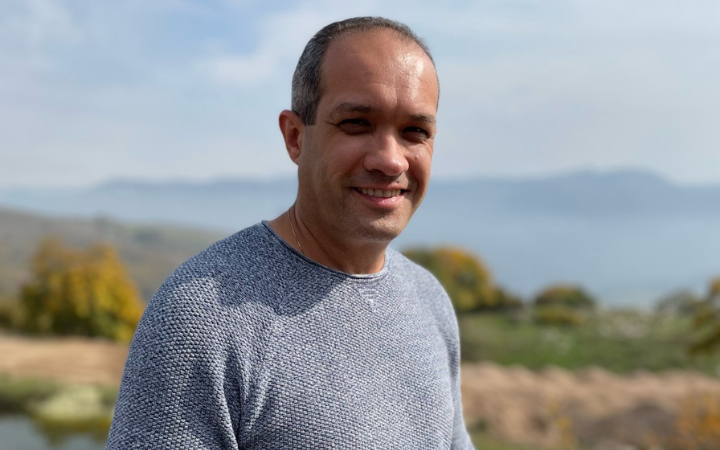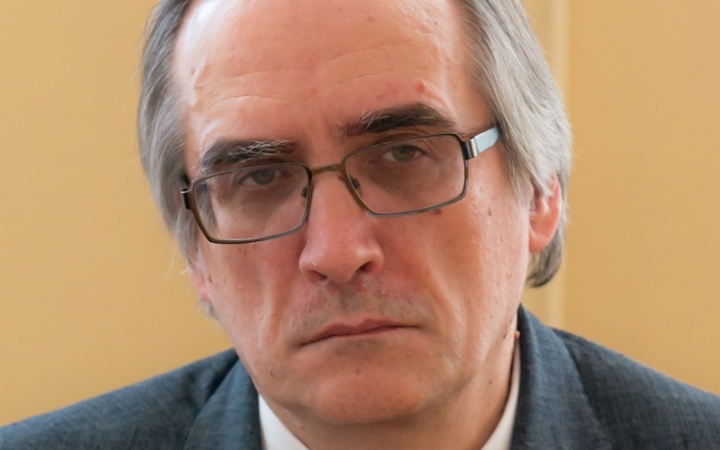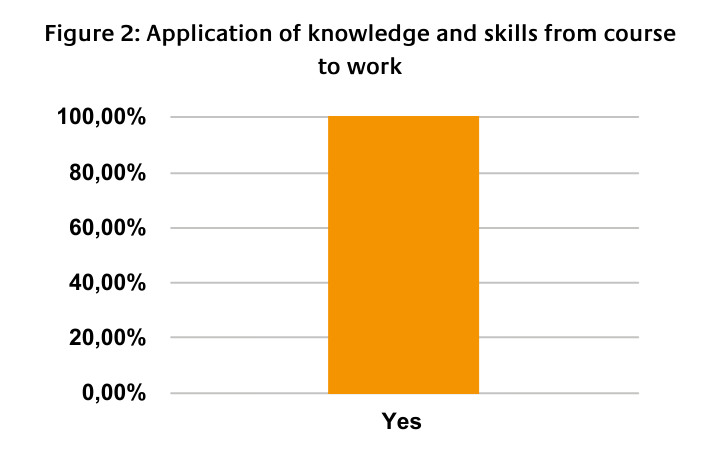Background
After a successful run of an initial online course on “Agriculture in International Trade Agreements” in 2019, the Food and Agriculture Organization (FAO) and UNITAR held a rerun of the course in November 2020. Similar to the initial course, the second online course also targeted professionals from the post-Soviet region, selecting participants from 12 countries of Armenia, Azerbaijan, Belarus, Georgia, Kazakhstan, Kyrgyz Republic, the Republic of Moldova, the Russian Federation, Tajikistan, Turkmenistan, Ukraine and Uzbekistan. The course sought to build the capacities of professionals working in trade and agricultural policies across the region by enhancing their knowledge and skills in international trade agreements, trade policies and their interlinkage with agriculture as well as the relevance of WTO agreements on their national trade policies. Particular focus was also steered towards knowledge and skills provided in responding to agribusiness development amidst the ongoing COVID-19 pandemic.
The course learning objectives were to:
- Better understand the international regulatory frameworks governing trade and its implementation mechanism as well as the eventual implications of the recent WTO Ministerial Conferences.
- Discuss the significance of non-tariff measures (NTMs) on international trade and the relevance of WTO agreements regarding such measures on national trade policies.
- Formulate agricultural trade strategies tailored to trading partners, taking into consideration the differences in treatment of agriculture between the regional trade agreements and multilateral trade agreements.
High demand for the course, which was delivered in Russian and ran for 4 weeks, was witnessed following 343 applications. The main target audience, professionals working in governmental organizations, submitted a large percentage of applications (32.9 per cent of total applications). Other applications were also received from professionals working in academia, non-governmental organizations, private sector and regional organizations among others. 70 participants were selected with 55 per cent of those being women.
The relevance of the course was rated highly satisfactory following 100 per cent of the course evaluation survey respondents indicating their overall satisfaction with the course. 96 per cent of respondents further indicated that they found the course relevant to their work with 98 per cent indicating that they will likely use the information obtained from the course.
Respondents reported the immediate application of the knowledge and skills gained in several sections including the preparation of analytical reports, preparing proposals to improve national regulatory frameworks on agricultural trade and advising domestic producers.
It brought interesting changes in the work, as I started to look and analyze trade related issues in agricultural sector more deeply, to identify main reasons that limit of export of agricultural products. Based on this, relevant concept papers are drafted and we are looking now for a donor support to implement them.
I am currently involved in the development of a program to support organic agriculture in Russia. Including in terms of exports of organic agricultural products. The skills I acquired during the course allow me to take into account the requirements and obligations of the WTO in the process of developing the program.
My input supplemented with the knowledge obtained during the course was very useful during the joint discussion on the subject at the meetings between the Ministry of agriculture and Food Safety Agency.
The United Nations Institute for Training and Research (UNITAR) and the Food and Agriculture Organization of the United Nations (FAO) has a long-standing collaboration aimed at expanding access to education and training to strengthen capacities of stakeholders, with training activities on a wide range of topics being implemented since 2010.
The partnership builds upon the strengths of both institutions by transforming the knowledge expertise provided by FAO into high-quality learning products and services designed to transfer knowledge, impart skills, and raise awareness and takes full advantage of modern information and communication technology (ICT) for greater outreach and cost-effectiveness.
Application of knowledge and skills
A follow-up survey was undertaken one year after the course implementation to capture the impact of the course on the participants’ professional lives. Twenty responses were recorded which represents a twenty-eight per cent response rate. Ninety per cent of the respondents indicated that they are working in trade issues at the national or sectoral level with sixty-five per cent of these respondents further indicating that they are mostly involved in developing or implementing evidence-based agricultural, food security or trade policies. Accordingly, sixty-nine per cent of the respondents noted that the application of the knowledge and skills from the course is very important to their job success.
Moreover, one hundred per cent of the respondents have reportedly applied or transferred knowledge from the course to their work with sixty-one per cent reporting that they often apply the knowledge and skills as illustrated in chart 1. In particular, the knowledge from the course related to learning objectives one and three (see below) was applied or transferred by close to eighty-five per cent of the respondents. The chart below indicates the application or transfer of knowledge per learning objective.
Survey results also indicated that an average of fifty per cent of the application of knowledge and skills by the respondents in their workplace can be directly attributed to the training and a further sixty-nine per cent noted that they are very confident in applying the knowledge and skills.
Following these, the survey results showcased that factors related to (1) the opportunity to apply the knowledge and skills, (2) confidence and (3) availability of sufficient knowledge to be applied were the main three enabling factors for the participants driving their application of knowledge and skills. Inadequate funds, time and lack of a sound environment were however the key factors which hindered the participants’ knowledge and skill application after the course.
Participants also indicated the need for further follow-up courses to provide further knowledge and skills on non-tariff measures which is an area they identified as being quite relevant to their work.
The participants still remained in contact with each other as eighty-four per cent of the respondents indicated that they have been sharing ideas with each other as well as with the course trainers.
This impact story shares the experiences of two participants, from Armenia and Russia, to further showcase the relevance of the course, how they have applied the course knowledge and skills and how the course contents impact their role in trade and agriculture.
Ruben Sarukhanyan
Ruben Sarukhanyan
Director of the Economic Research and Development Support Center, Armenia
Trade and agriculture knowledge for research input
Yerevan, Armenia. With his career spanning over 20 years, Ruben currently works as the director of a non-governmental organization in Armenia, through which he executes projects that aim to improve the economy of the country and promote export. In his previous roles, Ruben acted as the head of the WTO Notification Agency in the Ministry of Economy of Armenia, and later headed the Agency for European Cooperation Programmes (Programme Administration Agency) before moving to work as a consultant in the private sector where he participated in decision-making on various trade and sector development issues by raising views and expectations of the private sector representatives.
With his current organization involved in research, it undertakes many research programmes which imply comparative analysis of the countries, particularly Armenia, in economy and export issues. The organization largely works with farmers and Small and Medium Enterprises (SMEs) in organizing events for increasing their opportunities and potential in the market. It further studies the legislation and government programmes connected with Green and Sustainable Agriculture and also provides recommendations and elaborates methodological strategies in order to achieve effective solutions to the issue of export.
Ruben applied for the course with the aim of assessing how theoretical information could be translated into practice given that international agreements are not interpreted and translated to the public. He also wished to gain more knowledge on what projects can be created on the basis of these agreements, that lead to export growth and help the state solve some of the problems associated with export growth.
For Ruben, the knowledge gained from the course has been fundamental towards the implementation of projects and studies in his work. Ruben adds that he used the knowledge gained from the course on WTO agreements, and in particular, the SPS agreement (The Agreement of the Application of Sanitary and Phytosanitary Measures), in further understanding non-tariff measures currently present in Armenia and how they can be minimized to increase exports. The FAO-UNITAR course provided Ruben with the necessary knowledge on SPS agreement and he used the information to develop a proposal for a project that seeks to study SPS challenges of Armenia in the agricultural sector.
Ruben estimates that approximately 60 to 70 per cent of the increase in his job confidence is due to the knowledge gained from the course. He adds that the course has facilitated his interest in how to apply the knowledge on foreign trade and WTO agreements in agriculture and assist in the implementation of state programmes. Ruben recognizes that the knowledge from the course is beneficial in the development and implementation of agricultural policies and strategies that he is undertaking in cooperation with different partners and state institutions, “The knowledge I received during the seminar is very helpful here. It helps me to analyze policies and strategies correctly, define and set the goals of the strategic directions correctly, and use this experience in developing action plans and project ideas”.
A difference in the quality of work has also been witnessed for Ruben following his participation in the course where he further shares the knowledge gained with his employees, clients and beneficiaries. Ruben suggests further interaction with other colleagues for future courses as he seeks to create and share different ideas with other participants across the region.
Andrey Korolkov
Andrey Korolkov
Head of Department of World Economy at Russian State Agrarian University – Moscow Timiryazev Agricultural Academy, Russia
Imparting agricultural trade knowledge to university students
Moscow, Russia. Andrey’s role as head of department of World Economy at the Russian State Agrarian University has seen him facilitate various disciplines for undergraduate, graduate and postgraduate programmes that are linked to the materials he studied during the FAO-UNITAR course. These disciplines include World Economy, World Agrarian Economy, State Support of Agrarian Production in the Conditions of the WTO and the EAEU, State Regulation of World Agriculture, International Agricultural Trade Policy, International Marketing and International Management. For Andrey, the course was essential in broadening his horizons and outlook on various aspects by facilitating his approach from different perspectives.
Andrey applied for the course with the desire of deepening his knowledge and assess how it can be used in his duties. Despite having prior knowledge on the topics given his line of duty in lecturing related topics at the university, Andrey found that he still gained new knowledge, particularly in the final module of the course which focused on the current state of negotiations and the positions of parties. Andrey recognized that he can easily link the knowledge from the course with what he currently lectures to his students such as on the WTO agreements and participation of international organizations, agrarian trade policy and the influence of politics on managerial decision-making among others.
As a lecturer, Andrey points out that the course is certainly useful in enhancing knowledge which is beneficial to the end-users, the students. In this regard, he notes that the course benefits both his employer by having a more competent teacher, and the students, who acquire effective and interesting information.
Andrey has embarked on spreading the knowledge acquired to his students acknowledging that the use of the knowledge varies depending on the students’ study levels, be it undergraduate, graduate or postgraduate. In the context of heavy workload and the COVID-19 pandemic, Andrey noted that he was still satisfied with his participation and learning in the course since he could follow the programme at his own pace.
A follow-up of the course, according to Andrey, would be highly appreciated, particularly one that expands on additional agreements besides the WTO as he hopes to continue obtaining further knowledge on emergence of new agreements globally.
Conclusion
The results from the experiences shared and comments and feedback from the participants illustrate different impacts generated by the course including an increased understanding of international trade regulatory frameworks and the relevance of WTO agreements in agricultural trade. The utility of the course remains prominent given the diverse use of the knowledge and skills by the participants also with regard to their work backgrounds such as the formulation and implementation of trade policies and the transfer of trade knowledge and skills through lectures and also illustrated by their high application rate to their work (Figure 2).
The timeliness of the course was also highly appreciated following member States in the post-Soviet region’s ongoing relations with the WTO and new agreements emerging in relation to trade and agriculture. Demand for the course is also showcased following the high number of applicants for this course. Suggestions from participants included the need for delivery of a follow-up course which focuses further on non-tariff measures as participants found that more knowledge on this aspect is required.


